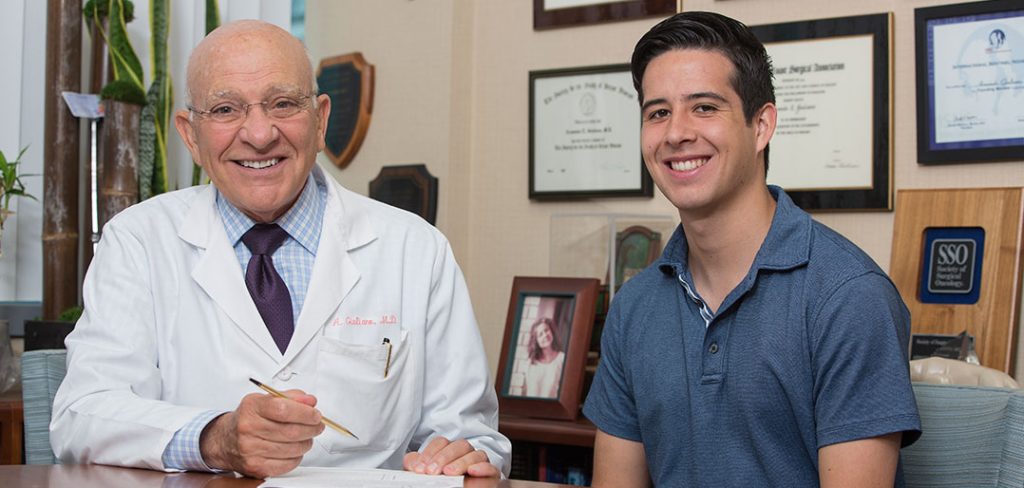Supple worked at a breast cancer research lab at Cedars-Sinai hospital in Los Angeles, not far from his home in Anaheim. The Fordham College at Rose Hill junior plans to become a physician, though he’s not sure what field of medicine he would like to specialize in.
“At Fordham, I’ve tried to broaden my areas of interest. I’ve been thinking about different areas of cancer and breast cancer specifically,” he says. “This was a great opportunity for me to learn more about the field.”
In the Tanaka Laboratory at Cedars-Sinai, Supple focused on identifying the biological and genetic pathways certain cancer cells use when growing and proliferating.
“The overall goal of the lab is to understand these pathways and create more accurate treatments based on the genetics behind the cancers,” says Supple, who’s in the pre-health program at Rose Hill.
He’s been guided in his research by Armando Giuliano, MD, FCRH ’69, a nationally renowned breast cancer researcher at Cedars-Sinai who established the internship. The two met weekly.
“He’s been a really great mentor, explaining the different facets of each type of research—lab and clinical,” says Supple. “If breast cancer research is a field I want to commit to, he’s definitely one of the best in the field. I would love to come back and work with him.”
Giuliano created the paid internship specifically for an LA-based Fordham student in the pre-health program. “I think it’s good to raise awareness of Fordham on the West Coast,” says the physician, one of six children and a scholarship recipient during his days at Rose Hill. “And it’s good to help a Fordham student learn about science. It’s a great opportunity for an undergraduate to spend some time in the lab.”
A member of Fordham’s Science Council, Giuliano supports undergraduate research at the University. “Paul is a great kid, a smart student of science. He learned many new science techniques being used in laboratories, and was inquisitive and interested. The professors liked him very much.”
To identify students who would be eligible for the internship, Giuliano worked with Carla Romney, DSc, associate dean for STEM (science, technology, engineering, and math) and pre-health education at Rose Hill.
“I couldn’t think of anyone better than Paul,” says Romney, who met Supple when she led a pre-health service trip to Colombia that he participated in during his sophomore year.
One of Romney’s priorities at Fordham has been to partner with alumni to connect students with new internships and experience.
“Students always need that entrée into an opportunity that could change their lives,” Romney says. “Research opportunities are the best predictors of retention in the sciences.” And it’s a win win: “Students bring these really rich experiences back into the classroom.”
A cancer cell biologist, Romney had been well acquainted with Giuliano’s work before she started at Fordham. “He’s a luminary,” she says. Supple is the first student to complete the Cedars-Sinai internship; Romney and Giuliano hope to continue the program with future L.A.-based Fordham students. Supple, who is of Mexican descent, said the Colombia trip dovetailed with his interest in working closely with the Latino population when he becomes a physician. Growing up, he had friends who were not legal citizens and therefore did not have access to quality healthcare. Both of his parents came from poor families. His mother was one of eight children, and all eight went to college. “My grandfather worked two to three jobs at a time,” he said. “I definitely know I have it good. I try not to forget where my family came from.”
He chose Fordham in large part because of the full-tuition scholarship he received from the University for being a semifinalist in the National Hispanic Recognition Program. “I knew money was important, especially if I wanted to go to medical school,” he said.
Fordham’s values as a Catholic, Jesuit university also appealed to the aspiring physician. “Catholic schools want more than just good students; they want good people. I hope that when I’m a doctor I’m not just in it for the money or the prestige. I genuinely want to help people. I want to give people the same sense of satisfaction and safety that I received from doctors throughout my life.”

